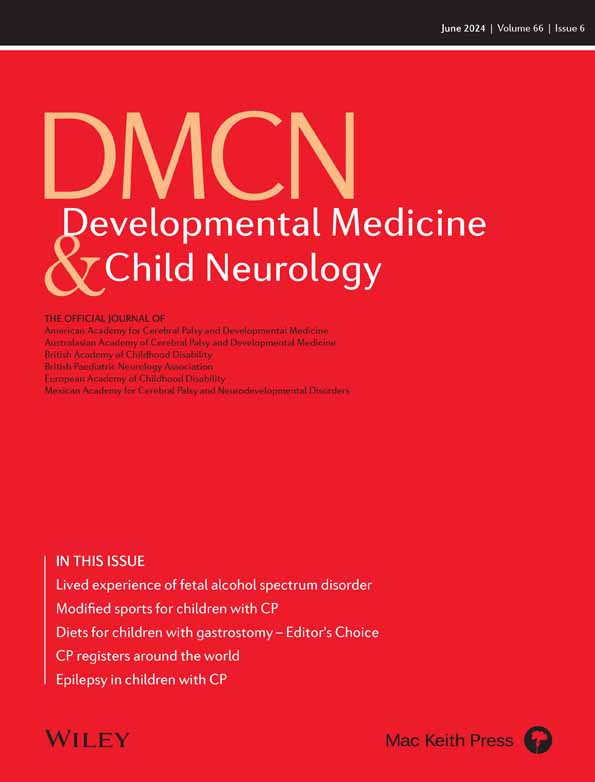The role of cerebral palsy registries in improving patient care and collaboration: A global perspective
This commentary is on the original article by Goldsmith et al. on pages 765–777 of this issue.
Abstract
This commentary is on the original article by Goldsmith et al. on pages 765–777 of this issue.
In today's world, collection of healthcare data plays a pivotal role in enhancing patient care. Patient registries are instrumental in gathering accurate and timely information about specific patient groups or conditions, such as cerebral palsy (CP) – a neurological disorder that affects movement and coordination.
Registries serve as invaluable resources for the CP community, facilitating quality improvement initiatives and research endeavors. They provide crucial population-level data that should be readily accessible to consumers, clinicians, and researchers alike. Registry data enables us to understand changes in population demographics, predict clinical outcomes, and evaluate the safety of healthcare technologies.1 Furthermore, registries allow for research on questions that may not be feasible to address through controlled trials.2
The study by Goldsmith et al.,3 which examined CP registries around the world, aimed to provide an updated overview of global registries with a focus on those used for epidemiological research. The objective of the study was to identify commonalities and differences among these registries in terms of their sustainability and potential for collaboration. By addressing these variations and promoting collaboration among registries, researchers can significantly improve their ability to conduct collaborative research in the future. Results from the survey emphasized the importance of utilizing a standardized set of data for CP registries, which ensures consistency in medical terminology across different clinical domains.3
The study by Goldsmith et al. sheds light on the expansion of CP registries, particularly in low- and middle-income countries, where participation increased significantly compared to a previous study.4 Registries in these countries are now being creatively employed for research, clinical interventions, and raising awareness about CP.
To ensure the quality of registry data, it is imperative to prioritize proper design, maintenance, and sustainability.5 International comparisons of registry data help us comprehend how different healthcare systems impact outcomes. Nonetheless, these comparisons must consider disparities in data definitions, medication access, healthcare systems, and standards of care between registries. For a comprehensive understanding of the epidemiology of CP and to benefit individuals living with CP and their clinical teams, the attainment of high-quality registry data with comprehensive coverage remains essential. From the Goldsmith et al. study we learn that most registries employ a minimum data set, although there is still variation in the specific items collected. The majority of registries measure research activities and impact, and many involve individuals with personal experience.3
One challenge encountered in CP registries is the lack of uniformity in data collection and methods. This could be addressed by comparing registries, although in the study by Goldsmith et al. some were not included, potentially affecting the representativeness of the findings. Despite this limitation, the study proved valuable in identifying variations and emphasizing the need for collaboration to minimize such issues and create more research opportunities.
The survey by Goldsmith et al.3 has significant implications for clinical practice and future research in the field of CP. Through the standardization of data collection and the sharing of best practices, registries can enhance the accuracy and reliability of their data. This will undoubtedly benefit clinical decision-making, resource allocation, and the development of interventions for individuals with CP. Collaborative research opportunities among registries will also contribute to a deeper understanding of the condition and lead to advancements in treatment and care. Consequently, a crucial challenge and future perspective for international CP registries lies in establishing a global collaboration to report outcomes that are of worldwide interest and foster advanced efforts in data harmonization. Overall, CP registries serve a vital role in improving healthcare and establishing research networks.
Open Research
DATA AVAILABILITY STATEMENT
Not required.




